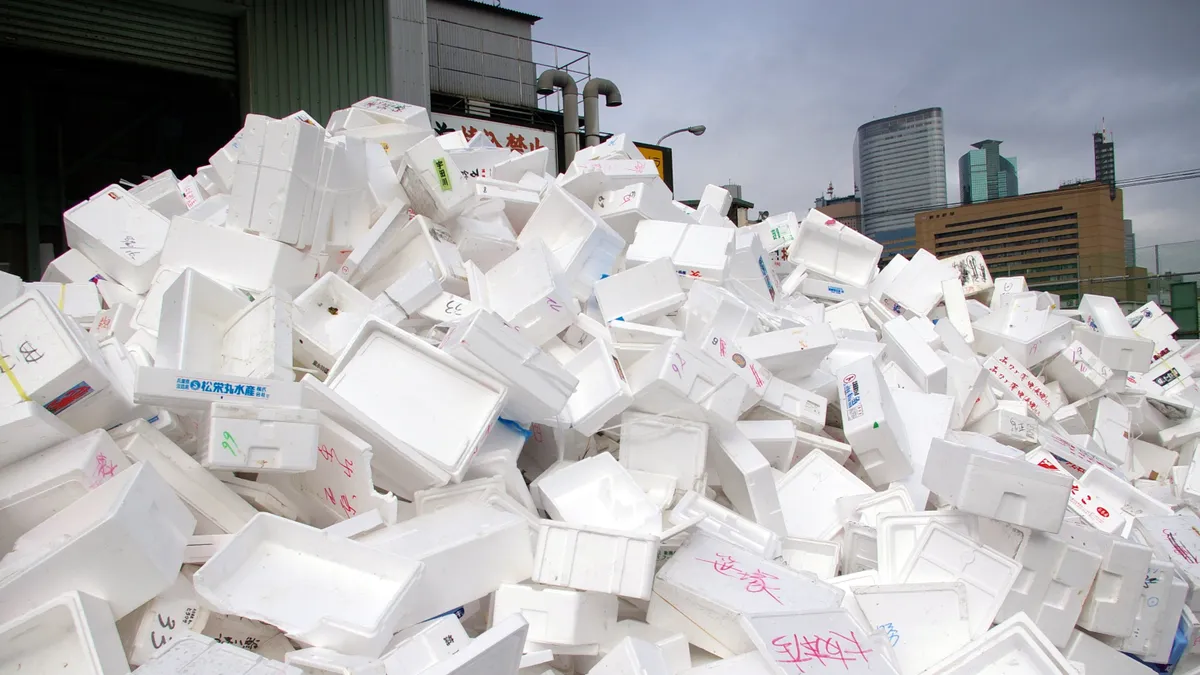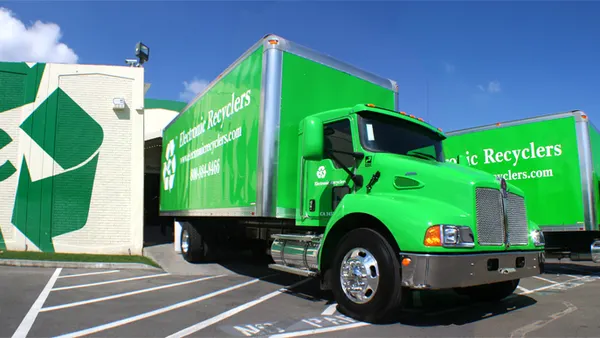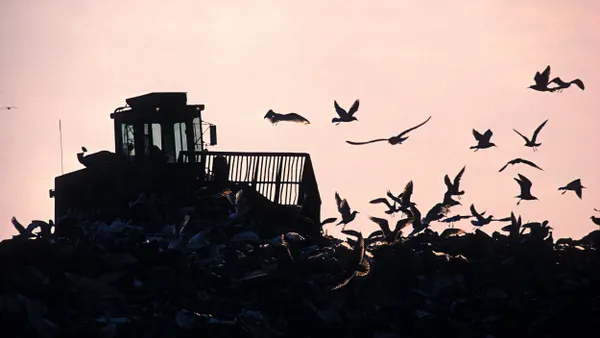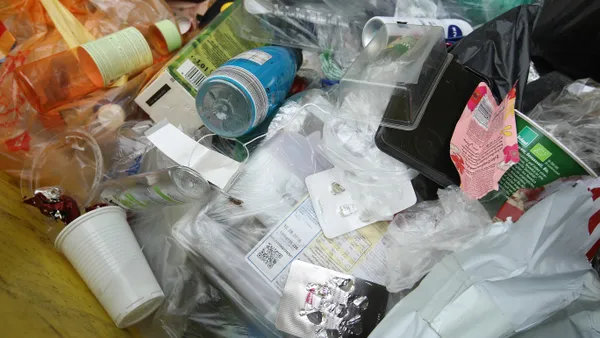Dive Brief:
- Two jointly filed bills have been introduced in Maryland's General Assembly that would prohibit the sale of any "expanded polystyrene foam food service product" and prohibit food service businesses from selling items in such packaging. This would also include "loose fill packaging" such as packing peanuts, as reported by WBFF.
- Any products that have been filled and sealed before coming to the food service business, including those from out of state, would be excluded. Any material used to package raw meat, fish, poultry or seafood would also be excluded. The Maryland Department of the Environment (MDE) could grant waivers for businesses that prove this would present an "undue hardship" or "practical difficulty."
- A hearing has been scheduled for the Senate bill, SB0186, on Jan. 31 and for the House bill, HB0229, on Feb. 15. If passed, the law would take effect on July 1, 2017 and enforcement would begin on January 1, 2018.
Dive Insight:
Maryland set ambitious "zero waste" goals under former Governor Martin O'Malley, and is doing better than many others with a 43.5% recycling diversion rate for 2014, but will likely fall short of the benchmark goal to hit 60% by 2020. While the MDE has recognized polystyrene products as recyclable, the material is only accepted through various drop-off programs in three counties and Baltimore. The Mr. Trash Wheel unit in Baltimore Harbor collects an estimated 14,000 polystyrene containers per month.
Similar bans already exist in two Maryland counties so according to an initial legislative analysis of the proposal, this would require a little more than $19,000 in one-time education costs. The document also says that potential effects on small businesses would be "minimal overall," though it does identify at least one state-based manufacturer of the material that would be affected. The reported success of a similar ban in Washington, D.C. is referenced as evidence that alternative packaging isn't significantly more expensive for businesses.
Yet as is the case with any type of proposed packaging ordinance, the potential cost burden for businesses and industry will likely be a main talking point. Similar polystyrene foam ordinances have now been passed in San Francisco, Seattle, both Portlands and elsewhere, though have failed in cities such as New York. No policies have been passed on a statewide level yet. While technology continues to improve for the transportation and processing of polystyrene foam for recycling, the material has now become a popular target for regulation in multiple countries.











